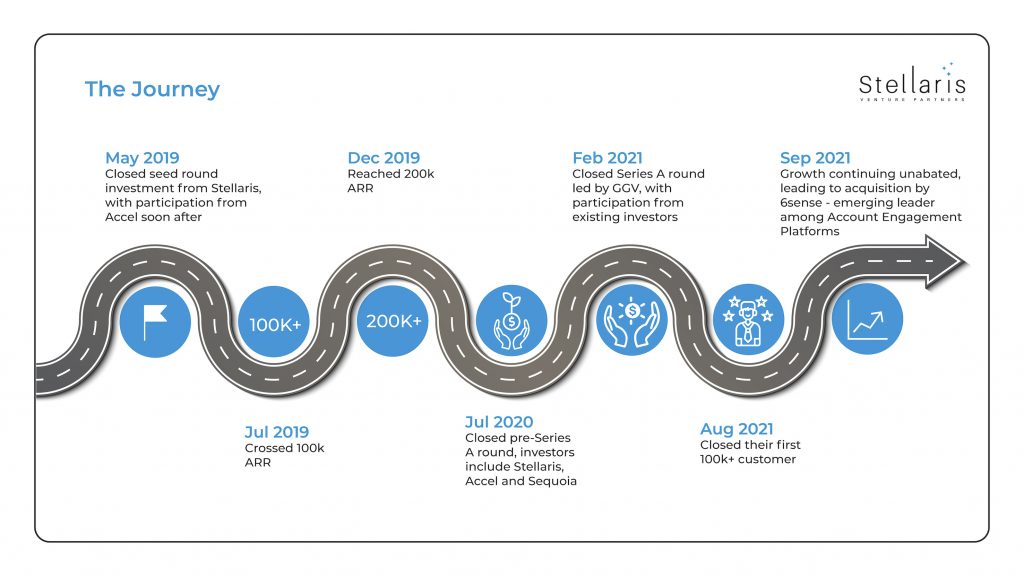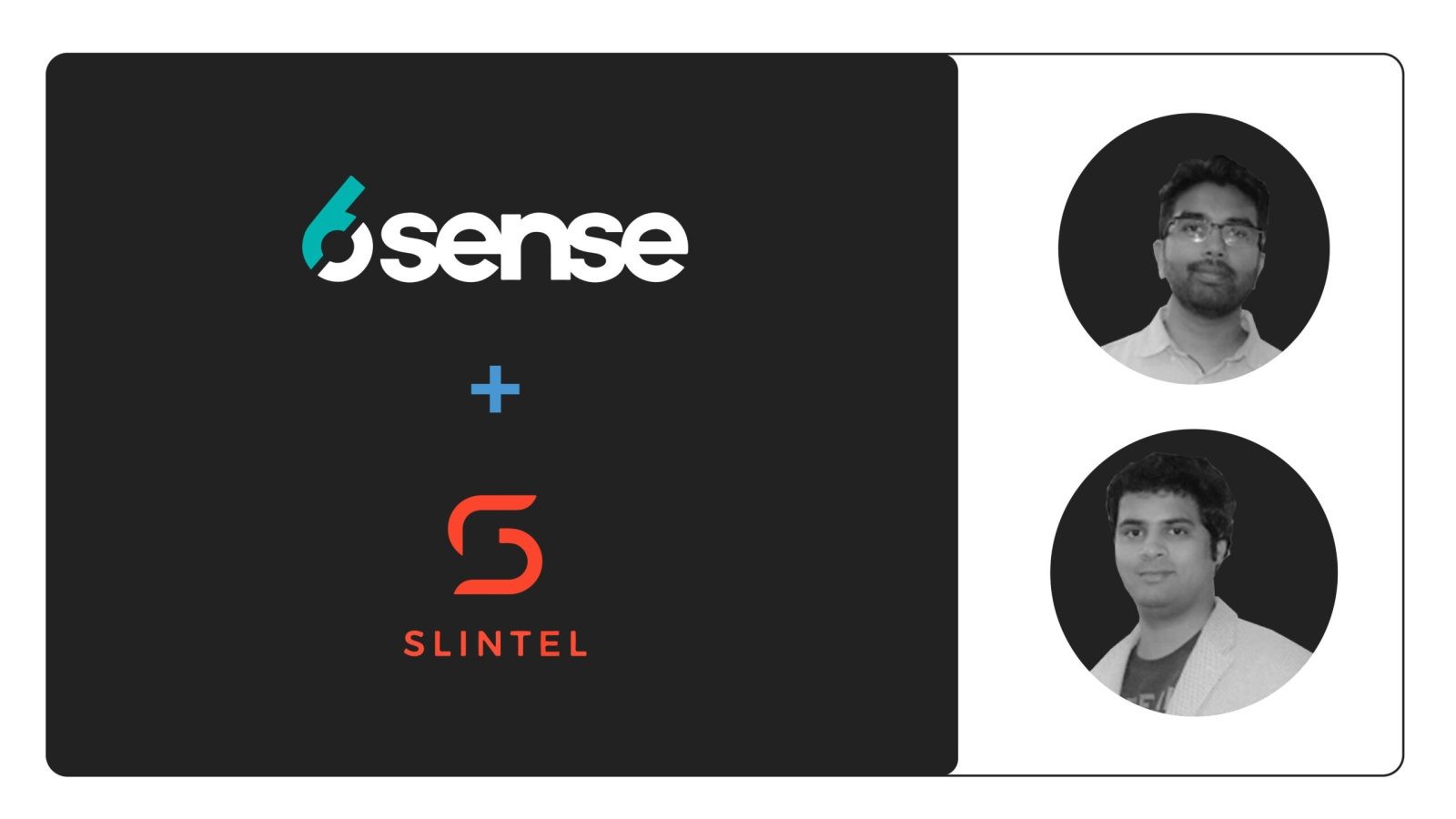In May 2019, we partnered with Slintel – a company we had known for 2 years prior – by leading their seed round. They have grown from strength to strength since then – ARR up >30X, ACVs up >2X – and recently announced their acquisition by 6sense, the global leader in account-based marketing solutions.

As we thought about the key enablers in this journey, a few things stood out for us.
1. Founder’s gut: Sometime late-2019 / early-2020, Deepak started talking about the concept of ‘buying intent’ as the cornerstone around which Slintel was likely to be built. For context, back then, Slintel’s differentiation was predominantly technographics – the segmentation of businesses based on the technology they use. We were a fledgling entity, with a strong ingoing hypothesis around the importance of technographics. In that chaos, Deepak identified – correctly, as it turns out – that sellers of B2B products would want to identify buyers earlier and earlier in their buying journey; the idea is not to win the race, but to pre-empt the race from even happening! Technographics was a necessary, but ultimately insufficient, input towards solving the problem of intent.
Building a business around technographics means your moat – if any – is likely to be proprietary data. Providing intent means a higher level of defensibility – not only do you have proprietary data, but you are also able to intelligently combine it with other data sources to provide proprietary insights. As one can imagine, selling insights is a different business than selling data. The early identification of intent’s importance allowed Slintel to change direction quickly, saving on the most valuable commodity for an early start-up, time.
2. Relentless Focus on Data: Slintel is ultimately a DaaS (Data As a Service) business; in such businesses, both the quality and quantity of data matter. If you have gaps vis-a-vis competition, you better close them fast. While this is not necessarily rocket science, it does have implications for building the business that are different to ‘traditional’ SaaS businesses. As an example, your MVP will differ as you target different types of customers e.g. based on geography or industry. While the underlying software workflows may be the same, you’d need a different set of data to get customers flocking to your door. Slintel started off with a focus on recruitment as a function, and gradually built a base level of data for different sets of customers, with a focus on quality that was driven by both Deepak and Rahul. Consequently, today, there is a high diversity in the customer base w.r.t. both geographies and industries for the business. What was also very impressive is the relentless focus the founders had on data quality metrics, which we believe is a core metric to be tracked for DaaS businesses.
3. Change in GTM Motion: At the time we invested, Slintel’s demand gen function was predominantly outbound. We hypothesized that their offering needed no education – prioritizing prospects is one of the most important problems for B2B marketers, and they actively search for solutions. Furthermore, it needed no implementation, and customers could pilot it within a week. This meant it was very amenable to being sold through an inbound demand gen motion – using various digital channels to generate a high intent pipeline, and using an inside sales team for conversion. The transition from outbound to inbound very early in their journey led to much higher scalability, as well as higher capital efficiency.
4. Capacity Planning: One of the challenges in most SaaS companies is capacity planning for all GTM functions. It takes time to hire and ramp up employees in marketing, sales and customer success. Deepak and his team did a very good job of planning 6-12 months ahead. The team consistently grew capacity since early 2020 across all GTM functions, which has been the secret sauce behind its rapid growth, without missing a beat.
5. Strength on the Cap Table: After we decided to partner, Slintel added seasoned investors – Accel, Sequoia and most recently GGV – to Slintel’s cap table. Not only did it provide the team the comfort to scale rapidly and run experiments, it also led to diverse and high quality conversations as part of our Board meetings. Navigating the turbulence of Covid, fundraising, product prioritization, hiring, GTM – we had enriching (and sometimes intense) discussions on all these topics, and then some!
Slintel and 6sense are highly complementary – both w.r.t product, as well as the GTM capabilities they bring to the table. To use the cliche, this is a match made in heaven, and we are pumped about finding a fantastic home for Slintel to continue the next phase of its journey. Here is wishing Deepak, Rahul and the entire team all the very best for the ride to come!

